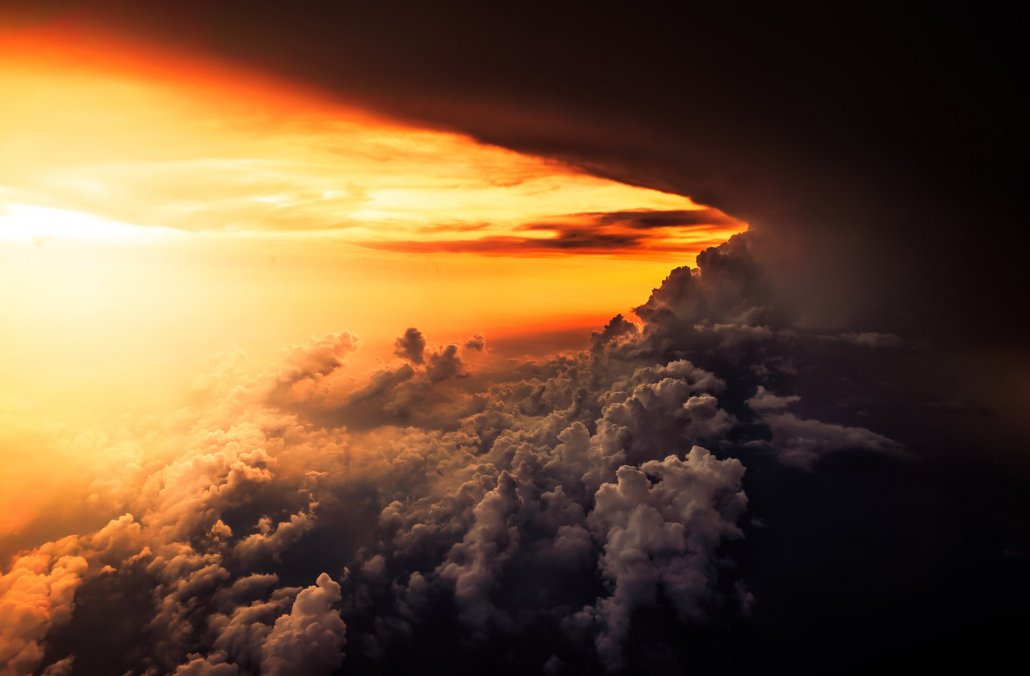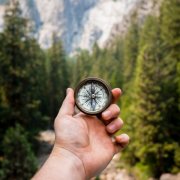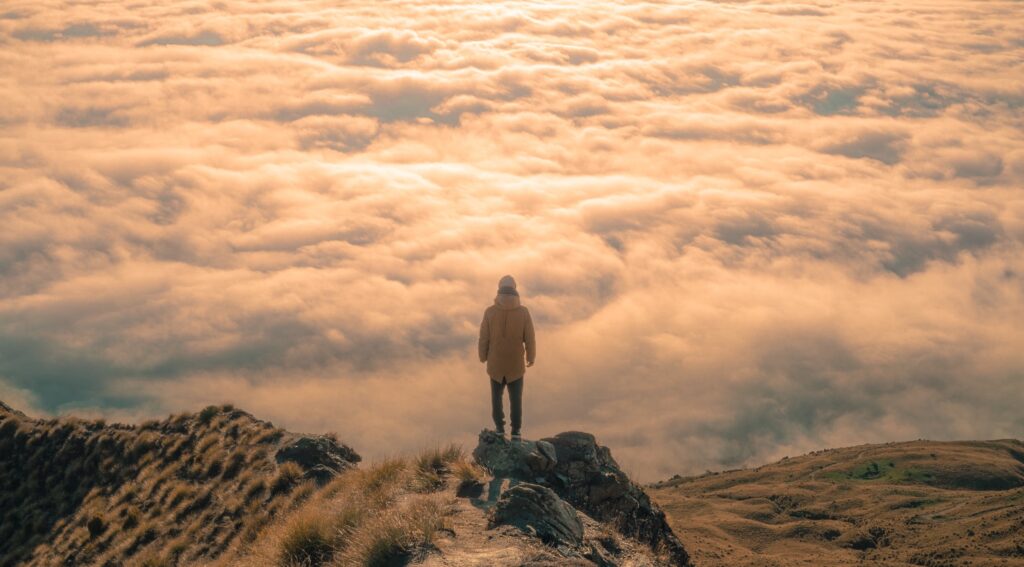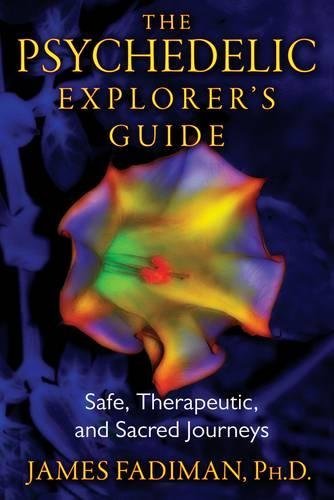For the closing post of this PSYJuly 2021, I would like to share my thoughts on an aspect of long-term psychedelic integration. That is, how we relate to psychedelics.
I think improving our relationship with psychedelics is a key but mostly unrecognised piece of long-term integration. This piece is more relevant for the long term practitioner because you don’t need to have a good relationship with a one night stand partner. For something longer term, you do.
If you are someone who has some kind of ongoing practice of working with psychedelics, how do you relate to them? What do you think about them? When you talk about them with others, how do you feel?
Healing and Understanding
Many users of psychedelics have feelings of guilt, shame, or embarrassment tied into their use. This is usually due to social stigma, cultural perception and drug laws, and many people remain closeted about their use.
Whilst opening up to friends and family members can be healing in some cases, it isn’t always the best option. Keeping the psychedelic part of ourselves hidden from others may often be the most pragmatic course of action.
To enjoy a really healthy relationship with psychedelics, however, it can help to explore any feelings of embarrassment and shame that we have around them.
Exploring the roots of these feelings can be done by journaling. Writing answers to some simple questions, such as ‘Why am I embarrassed? What do I feel ashamed of? Why am I keeping this hidden?’ can begin to bring more clarity, understanding and healing to the relationship.
Trust
Did you ever come out of a session feeling disappointed? Maybe you felt like it was a little bit of a letdown? I certainly have many times, and trust is something I have had to learn over time.
Trusting in psychedelics, the experiences they provide, and the insights they reveal, will bring about a more fruitful journey with them. Can you let go of the seeds of doubt in your mind?
‘You don’t always get what you want, but you get what you need”
– Psychedelics
This can also mean trusting in the process. Maybe you didn’t get what you were hoping for from a session. You still have the option to trust that on some level it was what you needed at this point, and that it will make sense within the larger context of your journey. Leaning into trust will ultimately benefit you and your relationship with psychedelics.
Patience
Through engaging with psychedelics continuously over a number of years, one of the most valuable but also hardest lessons I’ve had to learn, and am still learning, is that of patience. This is intertwined with trusting that I am being given what I need when I need it, and that ultimately, where I am is where I need to be, not at some point further along where I think I’m supposed to be. This means being patient in allowing the unfolding of my own journey, letting it unravel in its own perfect time, without trying to push it.
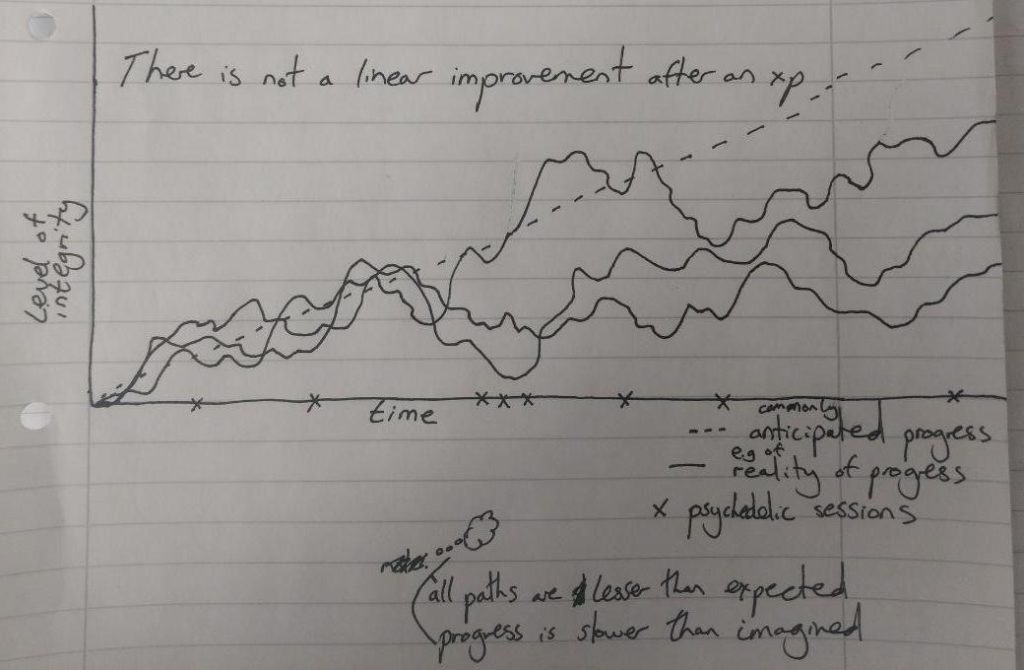
Patience helps us allow ourselves to be where we are
An example of practicing patience would be in the integration process. Rather than trying to fix everything at once and improve all areas of your life simultaneously, realise that you are a human and have limits. It’s wisest to choose one or two key areas to focus on. As for all the other things, be patient, they will come in time.
Respect
Psychedelics are incredibly powerful. They can can sit us on our ass, reduce us to babbling babies, and they can propel us to the far reaches of the universe to spaces we never even knew could exist. They can transform ourselves and the realities that we exist in, both inside and outside sessions. Psychedelics deserve y/our respect.
Gratitude
Practicing gratitude is one of the most powerful things we can do. I find it hard to express in words how much I love psychedelics. But beneath that, how grateful I am that they exist at all, and how incredibly fortunate I am to be in a position where I have access to them. Many people who would like to use them simply do not have the means, ability or access. There are people suffering from heavy depression, and others suffering with terminal cancer who are seeking access and are unable to receive it. I know because I’m contacted by these people and I do find the current reality around their access to be both upsetting and hard to accept. In those moments it’s again a chance to practice patience, and also gratitude for the privileged position that I find myself in.
Final thoughts
These are all overarching principles and lessons that I have received from psychedelics and I believe it’s a fitting response to reflect them back to the wonders which have bestowed these gifts upon me.
I believe anyone wishing to work with psychedelics over the long term can benefit from establishing a relationship with psychedelics founded upon these core elements.
.
Thank you for reading, and have a wonderful day!





